Moran BercoviciAssociate Professor, Faculty of Mechanical Engineering; Head, Technion Microfluidic Technologies Laboratory, Technion, Israel Institute of Technology Moran Bercovici is an Associate Professor of Mechanical Engineering and Biomedical Engineering at Technion – Israel Institute of Technology. His lab combines experimental, analytical, and computational tools to study problems characterized by coupling between fluid mechanics, heat transfer, electric fields, chemical reactions, and biological processes. He is equally interested in understanding basic physical mechanisms and in leveraging them to create new tools and technologies across different disciplines. His current focus areas are in rapid prototyping, adaptive optics, microscale flow control, configurable microstructures, and lab-on-chip systems. Moran holds a PhD in Aeronautics and Astronautics from Stanford University, worked as postdoctoral fellow at Stanford School of Medicine, and was a Harrington Faculty Fellow at the University of Texas at Austin. He authored and co-authored over 50 articles in top peer-reviewed journals, is the inventor of more than 20 patents, and is the recipient of several awards including the EU ERC Starting Grant, and the Blavatnik Prize – considered one of the most prestigious awards to young scientists in Israel. |
Martyn BoutelleProfessor of Biomedical Sensors Engineering, Imperial College London Martyn Boutelle is Professor of Biomedical Sensors Engineering in the Department of Bioengineering, Imperial College London, and Associate Provost for Estates Planning for Imperial College. |
John BrennanProfessor and Director, Biointerfaces Institute, McMaster University Professor John Brennan holds the Canada Research Chair in Bioanalytical Chemistry and Biointerfaces (Tier 1) and is Director of the Biointerfaces Institute at McMaster University. He is an expert in the development of biosensors and point-of-care diagnostics, with specific expertise in bioactive paper, high-throughput development of printable biomaterials, and development of solid-phase assays for diagnostics and small molecule screening. Dr. Brennan has published over 200 peer-reviewed papers, given over 150 invited presentations, and has been awarded several patents in the areas of POC diagnostics. |
Emmanuel DelamarcheManager Precision Diagnostics, IBM Research - Zürich Dr. Delamarche is currently leading activities on Precision Diagnostics at IBM Research - Zürich with the goal of using expertise in micro/nanotechnology, physics and biochemistry for solving important problems in biology and medicine. One of his main projects deals with the development of portable and precise diagnostic devices using microfluidic concepts and smartphones. In addition to his research, he is also a Lecturer at ETH Zurich and a contributor to scientific panels for grant agencies and governments. He published over 120 papers and is co-inventor on more than 70 patent families. He has received numerous awards from IBM, was named “Master Inventor” by IBM, and received the Werner prize of the Swiss Chemical Society in 2006. |
Joshua EdelProfessor, Imperial College London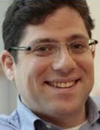 Professor Joshua Edel received his PhD on the development of single molecule detection within microfluidic systems at Imperial College London in 2003. He then performed postdoctoral research in nanobiotechnology at Cornell University within the School of Applied and Engineering Physics. In 2005 he was awarded a research fellowship in single molecule biophysics at the Rowland Institute at Harvard University. In July 2006 he joined Imperial College London within the Department of Chemistry and Institute of Biomedical Engineering as a lecturer (assistant professor). Dr Edel is currently Professor and in 2011 he was awarded a prestigious ERC Starting Grant on “Nanoporous Membranes for High Throughput Rare Event Bioanalysis.” |
Jong Wook HongProfessor of Bionano Technology and Bionano Engineering, Hanyang University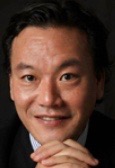 Jong Wook Hong is currently a professor of Bionano Technology and Bionano Engineering, Hanyang University, Korea. Hong has published research articles in various scientific journals including Science and Nature Biotechnology and holds more than ten US patents granted or pending. Hong’s research interests cover convergence microsystems for biotechnology, pharmaceutical sciences and future medicine. He received his Ph.D. in Chemical Engineering from The University of Tokyo as a Japanese Government Fellow. During and after his doctorate research, he worked at the Institute of Physical and Chemical Research (RIKEN), Japan, and at the Institute of Industrial Science (IIS), The University of Tokyo. Before joining Auburn University where he was granted tenure, he was a postdoctoral scholar at the T.J. Watson, Sr. Laboratories of Applied Physics of The California Institute of Technology (CALTECH), Pasadena, USA. He also served as a visiting professor of pharmacy at Seoul National University, Seoul, Korea. |
Roger KammCecil and Ida Green Distinguished Professor of Biological and Mechanical Engineering, Massachusetts Institute of Technology (MIT) Kamm is currently the Cecil and Ida Green Distinguished Professor of Biological and Mechanical Engineering at MIT, where he has served on the faculty since 1978. Kamm has long been instrumental in developing research activities at the interface of biology and mechanics, formerly in cell and molecular mechanics, and now in engineered living systems. Current interests are in developing models of healthy and diseased organ function using microfluidic technologies, with a focus on vascularization. Kamm has fostered biomechanics as Chair of the US National Committee on Biomechanics (2006-2009) and of the World Council on Biomechanics (2006-2010). Kamm currently directs the NSF Science and Technology Center on Emergent Behaviors of Integrated Cellular Systems. He is the 2010 recipient of the ASME Lissner Medal (American Society of Mechanical Engineering) and the 2015 recipient of the Huiskes Medal (European Society of Biomechanics), both for lifetime achievements, and is the inaugural recipient of the ASME Nerem Medal for mentoring and education. He was elected to the National Academy of Medicine in 2010. Kamm is co-founder of two companies, Cardiovascular Technologies and AIM Biotech, a manufacturer of microfluidic systems for 3D culture. |
Eloisa Lopez-CalleHead Assay Formats, Roche Diagnostics GmbH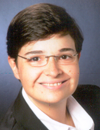 Eloisa Lopez-Calle studied Chemistry at the University of Freiburg. She received her Ph.D. from the Institute for Organic Chemistry and Biochemistry, University of Freiburg, in the field of Organic Chemistry, synthesis of new small molecules for Medicinal Chemistry, in 1995. Afterwards she was medicinal chemist in the pharmaceutical industry (Hoechst Marion Roussel, Aventis) for one year. In her subsequent jobs she developed assays and assay reagents for high-throughput screening in drug discovery (Evotec, 9 years) and in-vitro-diagnostics (Analyticon, 2 years). 9 years ago she joined Roche Diagnostics, where she is currently heading the department Assay Formats for the early development new tests and corresponding platforms. |
John McDevittChair, Department Biomaterials, New York University College of Dentistry Bioengineering Institute John T. McDevitt serves as the Chair for the Department Biomaterials at New York University College of Dentistry, is a member of NYU’s Bioengineering Institute and participates as a faculty member in the NYU Department of Chemical and Biomolecular Engineering within the Tandon School of Engineering. McDevitt is a pioneer in the development of ‘programmable bio-nano-chip’ technologies. He has a strong track record of translating essential bioscience discoveries into real-world clinical practice. In this capacity, he serves as the Scientific Founder for three diagnostic companies. His most recent company, SensoDx, features a universal platform sensor technology with capacity to digitize biological signatures for a broad range of key health conditions. McDevitt and his team has raised over $45M in Federal and Foundation support. His recent research has been sponsored by major programs funded by the National Institute of Dental and Craniofacial Research (NIDCR) division of the National Institutes of Health (NIH), the Bill and Melinda Gates Foundation, Cancer Prevention Research Institute of Texas (CPRIT), the National Aeronautics and Space Administration (NASA), the Army and the United Kingdom’s Home Office Scientific Development Branch. |
Arben MerkoçiICREA Professor and Director of the Nanobioelectronics & Biosensors Group, Institut Català de Nanociencia i Nanotecnologia (ICN2), Barcelona Institute of Science and Technology (BIST)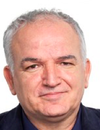 Arben Merkoçi is currently ICREA Professor and director of the Nanobioelectronics & Biosensors Group at Institut Català de Nanociencia i Nanotecnologia (ICN2), part of Barcelona Institute of Science and Technology (BIST). After his PhD (1991) at Tirana University (Albania), in the topic of Ion-Selective-Electrodes (ISEs) Dr. Merkoçi worked as postdoc and senior researcher/invited professor in the field of nanobiosensors and lab-on-a-chip technologies in Italy, Spain, USA and since 2006 at ICN2. Prof. Merkoçi research is focused on the design and application of cutting edge nanotechnology and nanoscience based cost/efficient biosensors. The paper/plastic-based nanobiosensors involve integration of biological molecules (DNA, antibodies, cells and enzymes) and other (bio)receptors with micro- and nanostructures/motors and applied in diagnostics, environmental monitoring or safety and security. He has published around 300 peer review research papers (H index: 61 WOS; 79 GS), supervised 30 PhD students and has been invited to give plenary lectures and keynote speeches in around 200 occasions in various countries. Prof. Merkoçi is Co-Editor In Chief of Biosensors and Bioelectronics and member of Editorial Board of other journals. He is co-founder of two spin-off companies, PaperDrop dedicated to nanodiagnostics and GraphenicaLab to electronic printing. See more details on his CV at: https://www.icrea.cat/security/files/researchers/files-maintenance/full_cv_amerkoci_0.pdf |
Amy ShenProfessor and Provost, Okinawa Institute of Science and Technology Graduate University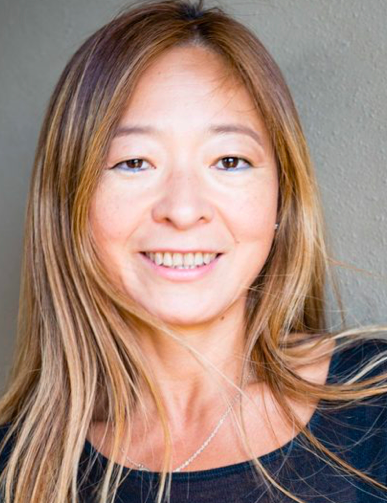 Amy Shen is the provost and professor at Okinawa Institute of Science and Technology Graduate University (OIST) in Japan, leading the Micro/Bio/Nanofluidics Unit. Amy's research is focused on microfluidics and lab-on-a-chip devices at the bio/nano-interface, with applications in biotechnology. She is a Fellow of the American Physical Society, the Royal Society of Chemistry, and Society of Rheology. Amy was also a Fulbright Scholar in 2013. She is an associate editor for Soft Matter and serves on the editorial advisory board for ACS Sensors, Journal of Rheology, and Physics of Fluids. |
Steve SoperFoundation Distinguished Professor, Director, Center of BioModular Multi-Scale System for Precision Medicine, The University of Kansas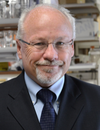 Prof. Soper is currently a Foundation Distinguished Professor in Chemistry and Mechanical Engineering at the University of Kansas, Lawrence. Prof. Soper also holds an appointment at Ulsan National Institute of Science and Technology in Ulsan, South Korea, where he is a World Class University Professor. He is also serving as a Science Advisor for a number of major worldwide companies. Prof. Soper is currently on the Editorial Board for Scientific Reports and Journal of Micro- and Nanosystems. |
Gregory TimpKeough-Hesburgh Professor of Electrical Engineering & Systems Biology, The University of Notre Dame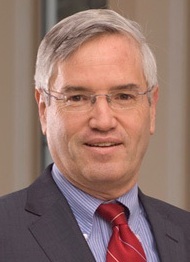 Gregory Louis Timp received his Ph.D. from the Massachusetts Institute of Technology in 1986 working with Mildred Dresselhaus. After a post-doc at IBM with Alan Fowler, he joined Bell Laboratories in 1988, where he engaged in research on nanostructure physics. In 2010, he joined the faculty of Notre Dame to pursue nano-biotechnology with an appointment jointly in Biological Sciences and Electrical Engineering. He is the Keough-Hesburgh professor of Engineering and Systems Biology. He is a Fellow of the American Association for the Advancement of Science; a Fellow of the American Physical Society; and a Fellow of the Institute of Electrical and Electronic Engineers. He has published over 150 articles in scientific journals and holds 10 patents. |




